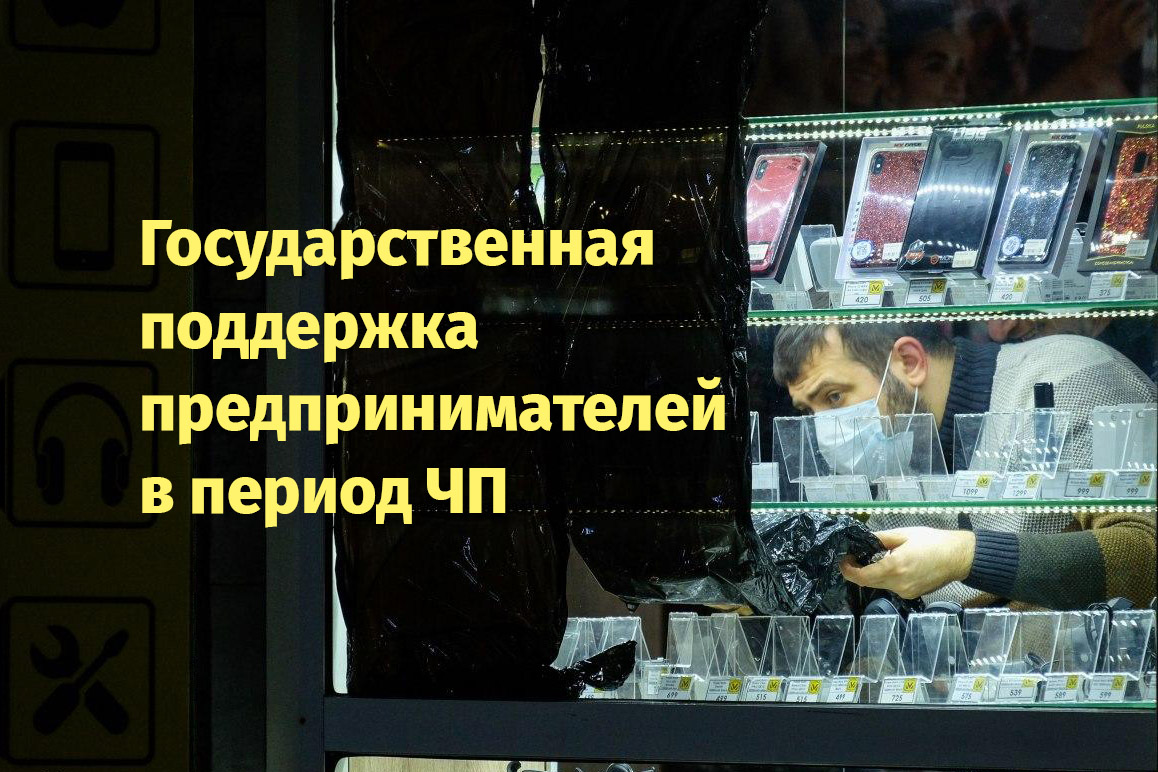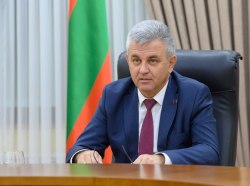In April, in Pridnestrovie it was signed a law “On state support during the state of emergency 2020”. Joint efforts of the leadership of the Republic have developed a whole set of measures aimed to reduce the negative effect of the quarantine-restrictive measures. This material details what state assistance can be received by the individual entrepreneurs unsettled by the quarantine-restrictive measures.
- THE TAX BURDEN REDUCING
- For individual entrepreneurs there is a recalculation of previous (accrued) tax payments for the period of non-work due to the state of emergency.
- Legal entities applying the simplified tax system shall get recalculation of the unified social tax amount and income tax amount for the same period.
- Other legal entities get a zero rate of a unified social tax amount for payments to the employees during the non-working period connected with the state of emergency. Fines against the organizations suspended (limited) their activity by a legal act or order have also been canceled.
In addition, all legal entities who make quarterly environmental payments have been allowed to make advance payments for the first quarter of this year in 1/8 amount of environmental payments 2019 actual amount. But it is necessary to subsequent environmental reporting and recalculation of the payment amount.
- DEFERRAL AND REDUCTION OF TAX PAYMENTS
This support is provided for enterprises of the footwear and clothing industry. For those expenses the tax factor for toll manufactured products has been reduced. From April 1 to December 31 2020 their income will be taxed with the coefficient 1.05.
Organizations carrying out gambling activities are allowed to recalculate the tax on gambling activities amount. For each object of taxation it should be divided by the number of calendar days per month and multiplied by the number of non-working days during the state of emergency.
- REDUCING THE ADMINISTRATIVE BURDEN
The administrative burden is reduced for both organizations and individual entrepreneurs. Permissive nature documents have been renewed automatically not only for the state of emergency period, but also within 30 calendar days from the date of its cancellation.
It concerns:
• permissive nature documents in the sphere of economic activity *;
• tags on the vehicles;
• self-employed person certificates, patents or documents confirming the right to apply a simplified system of taxation.
- Except the documents requiring notarization.
The registration requirement for the state of emergency period has also been canceled for:
• Mandatory certification of products and services, except for mandatory certification of medical-pharmaceutical products;
• Phytosanitary certificate of exported products produced in the territory of the PMR and import quarantine permit for products imported into the territory of the PMR.
- REDUCE BUSINESS COSTS EXPENSES
Within the framework of this direction, the deadline for submission of tax statements for February-April and the first quarter of 2020 has been postponed for legal entities. This must be done no later than 30 calendar days after the cancellation of the state of emergency. The same thing is about the statistical reporting. In addition, during the state of emergency all the checks requiring direct personal contact with representatives of the legal entities and the individual entrepreneurs are prohibited. Restrictions do not apply to sanitary and epidemiological monitoring and supervision of compliance with the PMR pricing legislation.
- CANCELLATION OF THE RENT
For those who rent state and/or municipal property it is allowed not to pay rent for a non-working period during the state of emergency.
- PREFERENTIAL LOANS FOR ORGANIZATIONS
The organizations whose business activities are suspended during the state of emergency are granted preferential loans for payment of wages and taxes for the state of the emergency 2020 period.
The loans are provided for the legal entities with no more than 10 million pridnestrovian rubles income for 2019, unitary enterprises, individual entrepreneurs, who have concluded civil-law contracts with attracted employees.
The maturity of such loans is until the end of this year. Currency – dollar, euro, Russian ruble, or Moldovan lei. The interest rate is 11% per annum, 10% of which is reimbursed by the state, and the borrower pays only 1%. At the same time, the balance of funds in the current accounts of the borrower should not exceed the obligations under the remuneration fund.
- PROLONGATION OF THE CREDIT
Here we are talking about preferential loans issued earlier under the program of subsidizing interest rates to the legal entities, as well as to peasant farms. These are borrowers who have issued preferential loans for the purchase and modernization of fixed assets. For them there were extended the maturity of the loan, but not more than 6 months.
- CO-FINANCING OF EMPLOYEES OF SMALL ENTERPRISES WAGES
Theses measures concern those organizations whose employees have a non-working period during the state of emergency. The State reimburses the cost of 50% of the minimum salary per employee. This assistance is provided for organizations with up to 50 employees with last year income amount less than 10 million pridnestrovian rubles. They must also have a direct ban on activities during the state of emergency and, of course, the facts of payment to employees not less than the minimum salary during the period.
Another condition is payment by the organization of non-working period from the day of restriction to the day of its termination, as well as payment only for the full-time employees who were the staff members by the time of the state of emergency introduction).
Organizations carrying out gambling-related activities, trading precious metals, pawnshops, as well as legal entities in the process of bankruptcy and liquidation cannot receive this support.
- INTEREST-FREE SALARY LOANS TO THE INDIVIDUAL ENTREPRENEURS AND MICRO-ENTERPRISES
Individual entrepreneurs and micro-enterprises can also receive tax-free interest-free loans from the State Security Fund to pay employees' salaries or taxes. The loan will be issued directly from the Fund under the guarantee of the founders and without the participation of commercial banks.
For one full-time employee of the micro-enterprise 1647 rubles per month will be accrued. The total amount of the loan will be equal to the number of full-time employees multiplied by 1 minimum salary.
In order to receive the loan, the entrepreneur needs to provide a package of documents, which includes the completed questionnaire, information about the enterprise, and the formed debt, as well as the staff number. The loan is available until December 31, 2020.
- UNEMPLOYMENT BENEFIT FOR INDIVIDUAL ENTREPRENEURS
All individual entrepreneurs who have suspended activities during the state of emergency are entitled to unemployment benefits. It can be claimed by the individual entrepreneur (including persons with disabilities of groups I and II) if their work during the state of emergency is limited by a legal act and it is prohibited by the state authority. They should also have valid documents by the beginning of the state of emergency and not to work during the state of emergency. Their employees are also entitled to the benefit under a number of conditions: the current contract at the time of prohibition and the entry of employment in the individual entrepreneur documents.
The monthly allowance is 1647 rubles.
The procedure for documenting the allowance has been simplified. It is necessary to provide an application with passport data and a number of the bank account.








